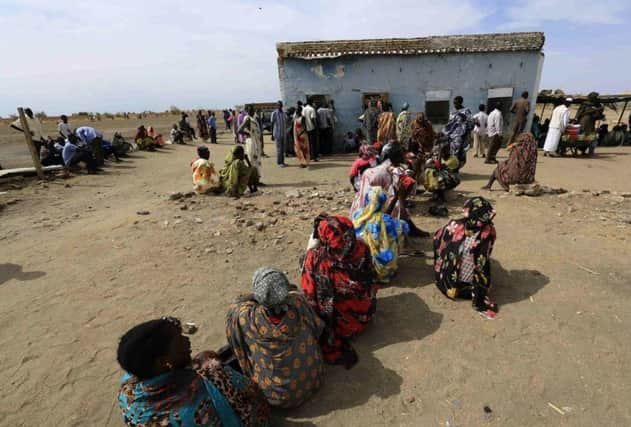South Sudan: UN slams ‘targeted killing of civilians’


The UN Mission in South Sudan condemned what it called “the targeted killings of civilians based on their ethnic origins and nationality” in a disputed town that is now under the control of anti-government forces.
In Bentiu, the capital of oil-producing Unity state, more than 200 people sheltering inside a mosque were killed last week after rebel forces seized the town, the Mission said in a statement, describing an apparent massacre after rebel forces ousted government troops from the key town.
Advertisement
Hide AdAdvertisement
Hide AdSome individuals “associated with the opposition” had used a radio station to broadcast hate speech, urging “men from one community to commit vengeful sexual violence against women from another community”.
After rebel forces captured Bentiu on 15 April, the rebels “searched a number of places where hundreds of South Sudanese and foreign civilians had taken refuge, and killed hundreds of the civilians after determining their ethnicity or nationality,” the statement said, citing the accounts of UN human rights investigators in the country.
Control of the oilfields is crucial because South Sudan, the world’s newest nation, gets about 90 per cent of its revenue from oil.
At Bentiu Hospital, several men, women and children from the Nuer ethnic group were killed for hiding and not joining other Nuers who had come out to cheer the rebels as they seized the town. Individuals from other South Sudanese communities, as well as people from Darfur, were also specifically targeted and killed at the hospital.
Hundreds more people sheltering at a mosque and a Catholic church were killed or wounded, the statement added.
Toby Lanzer, the UN’s top humanitarian official in South Sudan, said in Twitter posts yesterday that there were shocking scenes of atrocities, with “bodies of people executed” lying in the streets of Bentiu.
Thousands of people have been killed in violence since December, when presidential guards splintered and fought along ethnic lines.
The violence later spread across the country as soldiers loyal to president Salva Kiir tried to put down a rebellion led by Riek Machar, the former vice-president.
Advertisement
Hide AdAdvertisement
Hide AdThe UN has been warning of mounting evidence of ethnically-targeted killings in South Sudan as government troops and rebel forces lose and gain territories in sporadic clashes. Despite a ceasefire signed earlier this year, both sides also continue to trade allegations over rights violations and civilian abuses.
Mr Machar, an ethnic Nuer, has said he wants to see the exit of Mr Kiir – an ethnic Dinka – whom he accuses of acting like a dictator. Mr Kiir had accused Mr Machar of plotting a failed coup attempt in December last year that the government said then sparked unrest across the country.
A ceasefire was signed in January but there has been a recent upsurge in fighting. Last week, the UN said an attack on one of its bases in the town of Bor in which at least 58 people were killed could constitute a war crime. The UN has about 8,500 peacekeepers in South Sudan, which split from Sudan in 2011.
In a civil war marked by numerous human rights abuses, the reports from Bentiu are among the most shocking.
Many of the rebels say they took up arms because of the murder of their relatives in Juba at the beginning of this conflict.